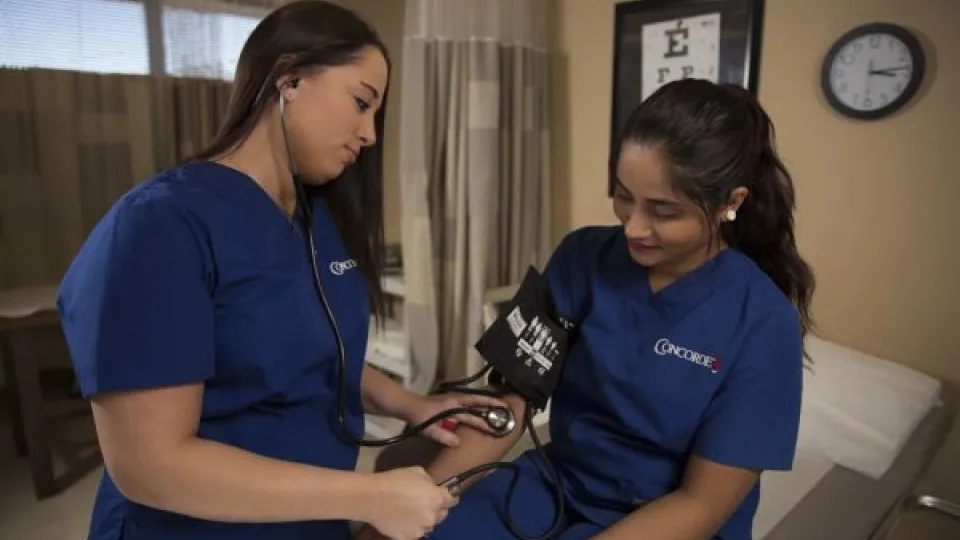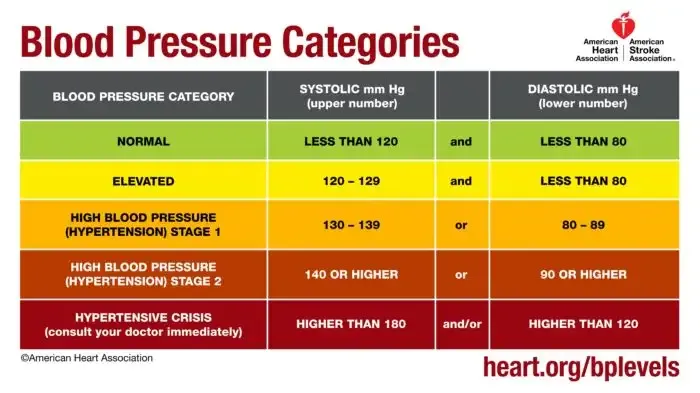
Have you ever sat in a doctor's appoint and had the medical assistant taking your vitals say, "Well, your blood pressure today is 115 over 78." ...and leave it at that.
Do you know what those numbers mean? Here's a quick segment from What You Need To Know About Blood Types:
"Blood pressure numbers represent your heart's health," said Hanna Hodges, BS, NCMA, Medical Assistant/Medical Office Administration Program Director at Concorde - San Antonio.
Hodges said the first, or top, the number represents systolic pressure. That's the amount of pressure inside your arteries when your heart muscle contracts. The second, or bottom, number is diastolic. That is the pressure in your arteries between heartbeats.
"These two numbers together show your provider a picture of how well the blood and oxygen are moving through the heart and can even help predict possible health complications," Hodges said. "Having a healthy lifestyle and regular exercise can help your blood pressure stay within a normal range."

If a medical assistant or doctor tells you that your blood pressure is in what would be in the yellow or above categories, there are some things that health professional suggest to try.
The American Heart Association touts "lifestyle modifications" as a starting point for addressing elevated levels.
While none of them may come as a surprise, together they can pack an effective one-two punch that could send those numbers in a better direction.
5 Natural ways to lower your blood pressure
1. Adopt the DASH Diet
A recent ABC News article contends that "The single intervention with the greatest documented effect on blood pressure is the 'DASH' diet (Dietary Approaches to Stop Hypertension), a well-studied diet that encourages fruits, vegetables and whole grains, and discourages foods high in saturated and total fats."
2. Add in a square of dark chocolate daily
Chocolate lovers, rejoice! Dark chocolate has been linked to a drop in blood pressure. But don't reach for the milk chocolate quite yet. You'll want to look for a cocoa content of at least 70%.
3. Are you exercising?
The recommended guidelines probably aren't as much as you think. Just 150 minutes (less than two hours) of exercise a week can have a huge impact on your overall numbers.
And it certainly doesn't have to be done all at once. Experts say you need at least 10-minute bursts of exercise to get your heart rate pumping.
Consider moderate-intensity exercise like walking, jogging, biking or swimming.
4. Alleviate stress in your life
Stress causes your blood vessels to tense and restricts proper flow.
We realize that not all stress is within your control. Knowing your triggers will help you avoid or limit your exposure to them. Can't remove them altogether? Check out our recent blog on how self-care might play a role.
5. Avoid salt, smoking, and snoring
Salt increases the stored water in your body. When you consume more than 2400 mg/per day, consistently, the extra water stored in your body raises your blood pressure; putting a strain on your heart, arteries, kidney, and brain.
Smoking does more than wreck your lungs. It also increases the risk of plaque inside the arteries and raises blood pressure by making the heart and blood flow do extra work.
Snoring may not be totally under your control, but addressing problems that come from blocked airways and getting a restful night sleep can be. If you experience prolonged snoring, a trip to the doctor may be in order.
Stay on top of your blood pressure
We certainly aren't advocating these as the only strategies or discounting that medication may play a role in your specific situation.Know your numbers, work with a medical professional to plan and make healthy changes to live the most fulfilled life possible!
If you want to start a career in health care or as a Medical Assistant, Concorde is a great place to start. Reach out to our Admissions office today to find out more.
Take The Next Step Towards a Brighter Future
We have a Concorde representative ready to talk about what matters most to you. Get answers about start dates, curriculum, financial aid, scholarships and more!




